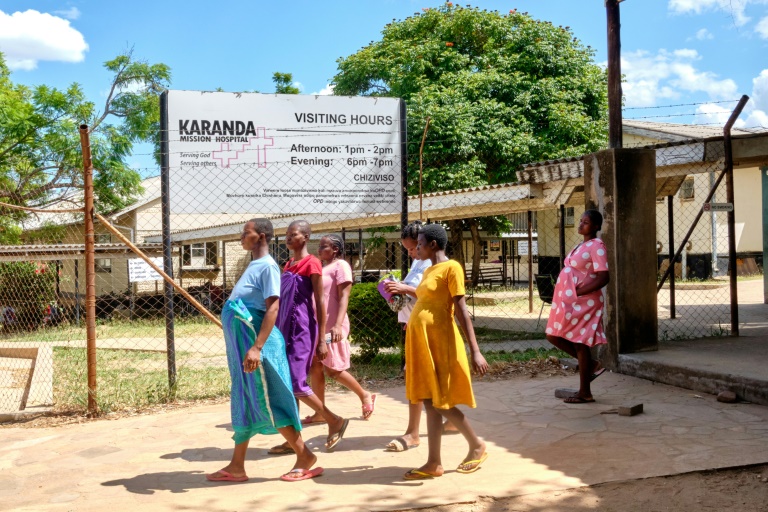 Health relief … Karanda Mission Hospital in Mount Darwin has provided affordable and quality health care despite associated hardships within Zimbabwe’s health sector (IMAGE: Jekesai NJIKIZANA)
Health relief … Karanda Mission Hospital in Mount Darwin has provided affordable and quality health care despite associated hardships within Zimbabwe’s health sector (IMAGE: Jekesai NJIKIZANA)MOUNT DARWIN – Outside a hospital in rural Zimbabwe, scores of people wait patiently under trees or inside small tents for news of their loved ones.
Vendors sell snacks, fruits and drinks to drivers queuing at the gates of what has become an unlikely sought-after healthcare destination in the impoverished southern African country.
Zimbabwe’s public health system has all but collapsed under years of mismanagement, amid shortages of funds, staff, medicine and equipment.
When in need, those who can afford it, including government ministers, fly overseas to seek treatment.
Some check into private, but relatively expensive clinics in Harare.
Many others make the trip to Mount Darwin, a small village in the parched countryside about 200 kilometres (125 miles) north of the capital and home to the Karanda Mission Hospital.
“I lost all hope of having my aunt treated in Harare, after we were asked to bring water for her to drink and bathe as well as to flush the toilet,” says a SUV-driving man, who gave his name as Gunira.
After a three-hour drive, nurses assist the aunt to move from the vehicle to a stretcher and take her inside the building.
Funded by the Evangelical church of Zimbabwe and run by three North American doctors, the hospital originally set up to cater to rural folks has built a reputation as one of the best in the country.
The 150-bed clinic treats up to 100,000 people a year and is almost always full, says medical director, Paul Thistle, a Canadian physician who married a Zimbabwean woman.
Charging affordable rates — a consultation costs around $15 compared to the average $50 asked by private hospitals in Harare — it draws patients from well beyond its catchment area. Some come from as far as neighbouring Zambia.
We “never turn any patient away”, says Thistle.
“Karanda has stood out not because we have the most modern medication, the highest technology in diagnostic and equipment but because we have the intangibles,” he told AFP.
That means a caring staff, something that elsewhere is also short in supply, say some patients.
Zimbabwean doctors and nurses have moved abroad en masse in recent years, due to poor working conditions and pay amid runaway inflation.


